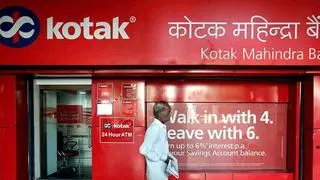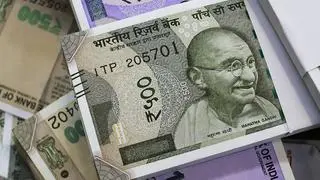The Reserve Bank of India is ready with a second list of defaulters which will be referred to the the National Company Law Tribunal (NCLT) under the Insolvency and Bankruptcy Code. The list is understood to have named of 35-40 companies which may have defaulted in loan repayments.
In June, the central bank had identified 12 large stressed accounts which collectively owed about ₹2 lakh crore, accounting for 25 per cent of the bad loans in the Indian banking system. This included Essar Steel, Bhushan Steel, Bhushan Power, Alok Industries, Electrosteel Steels, Monnet Ispat, and ABG Shipyard.
The fresh list also contains companies from the infrastructure and power sectors. According to sources, these companies will be sent to the NCLT if the debt issue is not resolved by mid-December. The list is likely to be formally released in September. BusinessLine is refraining from naming the defaulters till the official list is sent out to the lenders.
But share prices of Visa Steel, Videocon Industries, and Uttam Galva slipped on the stock exchanges after some TV channels named them as being the potential companies on the new list of defaulters. SEL Manufacturing, Unity Infra, Ruchi Soya and Nagarjuna Oil also saw a decline in share prices.
The IBC is touted as a speedy process for early identification and resolution of financial distress of companies and limited liability entities, if the underlying business is found to be viable.
The Tribunal will act as the adjudicating authority and deal with the cases related to insolvency, liquidation and bankruptcy.
When a firm defaults on its debt, control shifts from the shareholders/promoters to a Committee of Creditors, who have 180 days (which can be extended by a further 90 days with NCLT approval) to evaluate proposals from various players about resuscitating the company or taking it into liquidation.
In February, RBI Deputy Governor Viral Acharya had observed that most of the assets remain laden with such high levels of bank debt that their interest-coverage ratio is lower than one; they have little or no capacity to raise funding for working capital and capital expenditure, or to attract private investors to turn them around.
Original promoters — who rarely put in any financing and primarily provide sweat equity — have had somewhat of a field day, facing limited dilution, if any, of their initial stakes nor much of a threat of being outright replaced, he added.








Comments
Comments have to be in English, and in full sentences. They cannot be abusive or personal. Please abide by our community guidelines for posting your comments.
We have migrated to a new commenting platform. If you are already a registered user of TheHindu Businessline and logged in, you may continue to engage with our articles. If you do not have an account please register and login to post comments. Users can access their older comments by logging into their accounts on Vuukle.